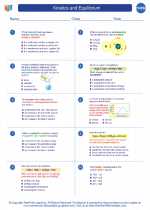Large Intestine
The large intestine, also known as the colon, is the final part of the digestive system. It is responsible for absorbing water and electrolytes from undigested food, and for the formation and storage of feces before they are eliminated from the body.
Anatomy of the Large Intestine
The large intestine is divided into several parts, including the cecum, ascending colon, transverse colon, descending colon, sigmoid colon, and rectum. It is approximately 1.5 meters long and 6.5 centimeters in diameter.
Functions of the Large Intestine
- Water Absorption: The large intestine absorbs water from the undigested food, leaving a semisolid waste material.
- Formation of Feces: It helps in the formation of feces by absorbing salts and electrolytes, and by hosting beneficial bacteria that further break down undigested material.
- Storage of Feces: The large intestine stores feces until they are ready to be eliminated from the body through the rectum and anus.
Common Disorders of the Large Intestine
Some common disorders of the large intestine include:
- Constipation: Difficulty in passing stools due to the slow movement of waste material through the colon, leading to hard and dry stools.
- Diarrhea: Frequent passage of loose, watery stools due to the rapid movement of waste material through the colon, resulting in decreased water absorption.
- Colon Cancer: Cancer that develops in the colon and rectum, often starting as polyps that can be detected and removed during a colonoscopy.
Study Guide
To study the large intestine effectively, consider the following:
- Understand the anatomy of the large intestine, including its parts and their functions.
- Learn about the processes that occur in the large intestine, such as water absorption, formation of feces, and storage of feces.
- Explore the common disorders of the large intestine and their causes, symptoms, and treatments.
- Review the role of the large intestine in the overall digestive system and its importance in maintaining homeostasis in the body.
Understanding the structure and functions of the large intestine is crucial for comprehending the digestive process and its impact on overall health.
.◂Chemistry Worksheets and Study Guides High School. Kinetics and Equilibrium
Worksheet/Answer key Kinetics and Equilibrium
Kinetics and Equilibrium  Worksheet/Answer key
Worksheet/Answer key Kinetics and Equilibrium
Kinetics and Equilibrium  Worksheet/Answer key
Worksheet/Answer key Kinetics and Equilibrium
Kinetics and Equilibrium 

 Worksheet/Answer key
Worksheet/Answer key
 Worksheet/Answer key
Worksheet/Answer key

The resources above cover the following skills:
PHYSICAL SCIENCE (NGSS)
Matter and Its Interactions
Students who demonstrate understanding can:
Develop a model to illustrate that the release or absorption of energy from a chemical reaction system depends upon the changes in total bond energy.
Refine the design of a chemical system by specifying a change in conditions that would produce increased amounts of products at equilibrium.
Energy
Students who demonstrate understanding can:
Develop and use models to illustrate that energy at the macroscopic scale can be accounted for as either motions of particles or energy stored in fields.